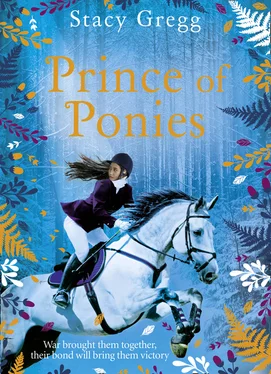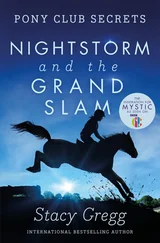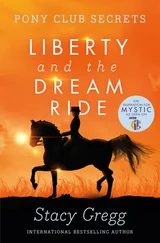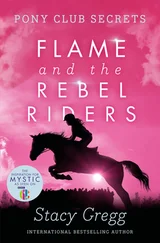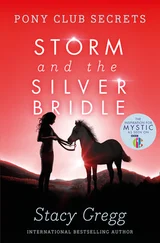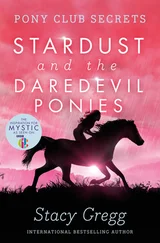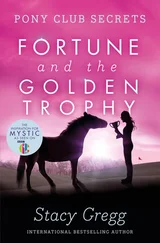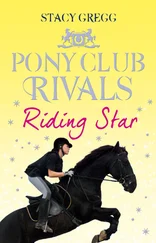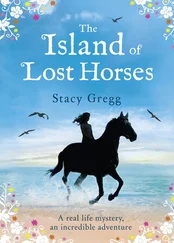As the day passed by, bands of travellers who were moving faster than we were would catch us up from time to time and our ranks would swell briefly. Sometimes they’d stay with our group, but other times they were too quick to keep our pace and they would leave us behind and disappear into the distance. So I knew that there were people on the road ahead of us, I suppose. All the same, it came as a total shock when, at the end of that second day, in the late afternoon, when we still had miles ahead of us to cover, we saw them all coming back towards us.
It was everyone that had passed us by, and a few others besides! They were heading back with as much urgency as we were going forward! As soon as we saw the looks on their faces, we knew things were very bad. My father ran forward to meet the group, and his face when he returned to us – it was very grave.
“We’re going back,” he said. “We must turn at once for home.”
“But that is crazy, Pavel!” My mother was stunned. “For all we know, the Nazis have already arrived in Janów Podlaski. We can’t go back!”
“We can’t go forward either,” my father replied. “Magda, look up ahead! Do you see the smoke?”
Now that my father said this, we could all see smoke billowing on the horizon. “The Red Army have bombed the village of Kovol,” my father said. “They’re coming, Magda. They’re on the road, and they are heading straight for us.”
“The Russians?” My mother was horrified. “How close?’
“They march nearer the longer we hesitate,” my father said. “We must turn and go home.”
If the mood on the road up until this point had been one of buoyed spirits and camaraderie, now it could be summed up in one word: fear. We were on a road in the middle of nowhere, unarmed, defenceless and trapped between two unstoppable armies. Instead of running from Janów Podlaski, we were now heading home and back into the clutches of Adolf Hitler.
“Mama?” I asked anxiously. “Will the Nazis be there? Will they treat us better than the Russians?”
My mother managed to summon a thin-lipped smile and she took my hand in hers and squeezed it tight. “They can hardly be worse!” she said.
“Why do they want Poland?” I asked.
“Hitler is flexing his muscles and expanding his empire,” Mama replied. “He wants more Lebensraum: living space for the German race.”
Mama stroked my hair with her hand. “The Germans come to rule us, but there is no reason to believe that they will harm us.”
Later, when things had turned truly bad for my family, I would think about what my mama said to me that day and wonder if she knew the true evil of Hitler’s vision and was keeping it from me because she didn’t want to scare me. In this new world, Hitler would rule Poland, the Germans would occupy it and the Polish people would be their slaves. But then, slavery was not even the worst that Hitler had in store for us.
***
We’d been on the road heading back for home for several hours when we heard a sound ahead, rumbling through the forest. As the rumble grew nearer, the earth beneath us trembled as if there was thunder under our feet. My friend Agata, who was walking nearby with her parents, and who until now had been very quiet, suddenly burst into floods of tears.
“It’s the Germans!” she sobbed. “They are coming for us!”
It wasn’t just Agata – others were crying too, and as the thunder grew closer, people began running in all directions.
“We must escape into the trees!” Mama cried.
“No!” my father said. “It is too late now. They will shoot us if we try and run from them. Stay behind me. I will wave the white flag and they will know that we are unarmed.”
My father had his white pocket handkerchief in his hand, ready to wave as he stepped to the front of the cavalcade to face the Nazis. I felt my whole body shaking now as the thunder grew and grew, until at last they came into view.
I have never in my life seen such a sight as I saw that day.
What came at us round the bend in the road wasn’t the Nazis at all. It was horses – almost a hundred of them. Wild and loose, running together as a herd, so many of them jammed on the road that they were pressed up shoulder to shoulder. It was the pounding of their hooves, overwhelming in unison, that shook the ground under us!
Flanking this wild herd, mounted on horseback, were a dozen men. Each of them carried a rope and a whip, and they were attempting to keep the horses moving forward together, which was not easy. They might as well have been trying to herd cats! The most difficult were the young ones, tiny foals who ran, bewildered, at their mother’s side, flagging with exhaustion. Then there were the yearling colts and fillies, who kept breaking loose so that the men on horseback had to ride out in wide loops to bring them back to the herd again. Every time they rode out to rescue one of the colts who had bolted away, they would lose control of the rest of the group, and then there would be even more horses to muster back before they got lost in the trees.
Until this moment, the only horses I had known were the thick-set, plodding creatures who pulled the carts in our village. These horses were totally different. They were all fire and glory, and they almost floated above the ground, their paces were so smooth and balletic. It was as if, with each stride, they were held suspended in mid-air. I was mesmerised by their gracefulness.
Seeing that the horses were about to collide with our party, one of the men on horseback began shouting out orders to his men, and they rode swiftly forward to bring their own horses in front of the stampeding ones, turning about-face to create a blockade. Confronted with the men on horseback, the wild herd came to a standstill. Just like that, a hundred wild horses were brought to a halt, corralled right there in front of us on the road.
“Pavel?” The man who had given the orders now turned to us. He’d recognised my father and my father knew him too.
“Vaclav.” My father shook his hand. “It is good to see you, my friend.”
“Why are you turning back?” Vaclav asked.
“The Russians,” my father explained. “They’re advancing. For all we know, they’re already at the river.”
Vaclav shook his head ruefully. “So we are stuck between the devil and the deep blue sea. If we turn back, the Nazis will certainly seize our horses.”
“Yes, but, sir,” one of his men shot back at him, “if we encounter the Russians, it will be worse! They will eat them!”
As the men were debating what to do, I was admiring the horses. There was one particular colt that caught my attention. He was dark steel-grey, with sooty black stockings that ran up all four of his legs and a white snip on his muzzle. He was so beautiful! It wasn’t just his looks that captivated me, though – it was the way he carried himself. He moved constantly, fretting and stomping, as if he had hot coals beneath his hooves. With his neck arched and his tail aloft, he pawed and pirouetted, flicking his noble head up and down in consternation. I remember that day – how all the other horses seemed to melt away, and at that moment there was only that grey colt right there in front of me.
One of the men on horseback, a young groom, noticed me staring at the colt.
“He’s beautiful, yes?” he said.
“Yes.” I nodded. “He’s my favourite.”
“You have a good eye!” the young groom said. “The Janów Estate breeds the best Arabians in the whole of Europe. And Prince is without a doubt the very finest of them all. He’s worth a lot of money.”
“Is that his name? I asked. “Prince?”
“Prince of Poland is his full name,” the young groom corrected me. And then he untied a rope from his saddle and handed it to me. “Put this on him if you want, and you can lead him back. He’s quite the escape artist this one – always bolting off away from the herd. It would help us if you led him on the journey back, since it appears we are now going home again.”
Читать дальше
